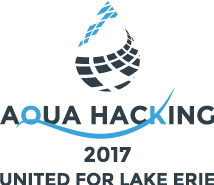From Uncertainty Quantification to Hypothesis-Testing in Hydrological Application: Review of recent advances


Join us for a facilitated panel discussion on coastal watersheds in the Anthropocene. Supported by the OceanCanada Partnership and the Water Institute, this public event is being organized as part of a two-day workshop with the goal to develop and apply a social-ecological system perspective to broaden our understanding of abrupt and rapid changes in coastal watersheds.
In this seminar, Diane Dupont, a professor in the Department of Economics and member of the Environmental Sustainability Research Centre at Brock University, presents a method for obtaining public preferences for improved water and wastewater management.
Register today.
Light refreshments will be provided.

Co-hosted by the University of Waterloo and Wilfrid Laurier University, this event is a celebration of water which showcases water research at both universities. This year it will be hosted at Wilfrid Laurier.
Renison University College will be hosting the annual, international Trinity Institute Conference on March 22-24, 2017. This year's livestream from New York City will focus on Water Justice.
Trinity Institute is a global conference held in New York City and webcast all over the world. With a sharp focus on the need for water justice initiatives in areas of access, droughts, pollution, rising tides, and flooding, Trinity Institute aims to offer actionable guidance surrounding these issues.
In this seminar Barret Kurylyk, Research Associate at McMaster University, presents an overview of the role of heat energy in the hydrologic cycle, looking at the role of heat as a tracer, of heat as a water quality issue, and the application of physically-based models to questions of permafrost hydrology.
Register today.
Light refreshments will be provided.
Join us on March 29, from 4:30 - 6:30 p.m. in the Centre for Environmental and Information Technology (EIT) Atrium at the University of Waterloo for food, drinks and information about AquaHacking 2017. Learn about the competition, have your questions answered, learn about past winners and find out how you can be a part of this innovative movement!


AquaHacking is a multi-stage hackathon with a focus on developing functional, marketable innovations to address Lake Erie’s water issues. Students with a passion for water, hackers, engineers, and other creative minds are invited to work together in teams over a 10 week period to develop technology that will positively impact Lake Erie.
 As part of the Water Institute's WaterTalks lecture series, Jeremy Schmidt, lecturer of Human Geography at Durham University, United Kingdom, presents "Water: Abundance, Scarcity, and Security in the Age of Humanity."
As part of the Water Institute's WaterTalks lecture series, Jeremy Schmidt, lecturer of Human Geography at Durham University, United Kingdom, presents "Water: Abundance, Scarcity, and Security in the Age of Humanity."